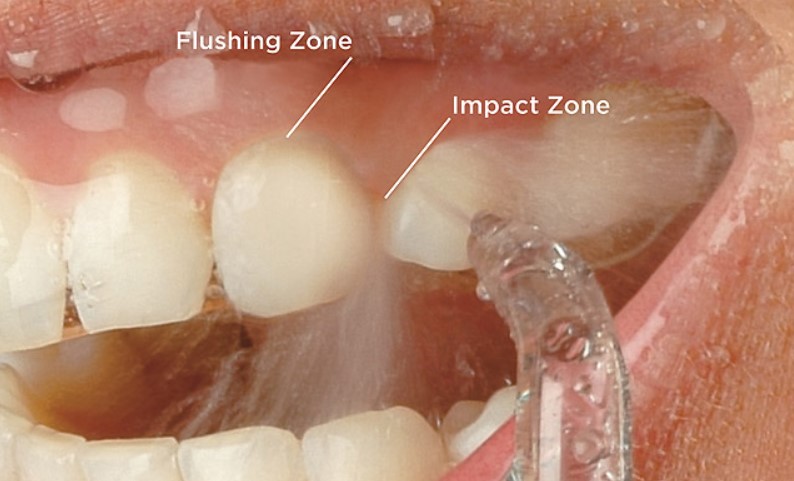Is water Flossing Effective? The Best Ways to Use Flosser

Is water flossing effective? Is the same query whirling into your mind? No worries, The Dental Express Poway is the best station where you can find the suitable answer to your query and step towards the best way to maintain oral health.
According to the American Dental Association, water flossing with ADA sealing acceptance helps you remove the plaque. A layer of bacteria accumulates on the teeth and, if not appropriately treated, may turn into tartar, which is hard to remove.
Tartar is hard to remove and contributes to various dental problems, such as cavities and gum diseases. However, some experts say water flossing is less effective than other flossing methods.
How Does Water Flossing Prove to Be Effective?
Individuals can floss water using various methods. The easiest is flossing your mouth with tap water after a meal. Some prefer a water flosser with handles for better flossing and removal of left food particles.
When using the water flosser, you fill the bottle with water, place it on your teeth along the gumlines, and turn it on. The flosser releases a steady steam flow and gently removes food particles from hard-to-reach areas.
The working principle of the water flosser is hydrokinetics, which is the movement of water. This water movement gently removes the loose bacteria and properly cleanses the gumline.
The interdental flossing method reduces gum bleeding but does not remove plaque as effectively as traditional flossing.
How to Use the Water Flosser? The Best Ways to Use Flosser
- The foremost thing you have to do is fill the reservoir with water
- You can choose any tip for the flosser from the many available
- Click the tip on the handle and turn on the flosser for better flossing
- While using the flosser, lean over to avoid wetting your clothes
- Place the flosser tip on the gum line and start flossing your gumline from one gum to another
- Once you have done the flossing, turn off the flosser and remove teh brush from the flosser.
Water Flossing- An Ideal Solution to Choose
When you opt for water flossing, you will get multiple benefits, making you more confident regarding your oral health. The list of benefits includes,
Effectively Removes Debris Between Teeth
People with spaces between their teeth are often disturbed by the food particles stuck between the teeth. They hesitate while meeting with people in th social gatherings. Flossing your mouth with water helps you adequately remove all the debris.
Avoid Gum Bleeding
Having tartar on teeth may cause your gums to bleed. Flossing your mouth with water will prevent the bleeding of gums and reduce the discomfort caused by gingivitis. Having well-balanced dental health makes you more confident when you speak in social gatherings.
Good at Maintaining Dental Prosthetics
One significant issue individuals face after dental treatment is the disturbance in their dental prosthetics. Proper dental flossing can maintain oral prosthetics, including braces, which are more prone to bacteria that may severely affect the teeth.
Minimize the Build of Bacteria
One of the most significant causes of gum disease and other dental issues is the accumulation of bacteria in the mouth. Food particles left behind are the primary cause of the growth of these decaying bacteria and severely damage your oral health. Flossing helps you reduce teh number of these growing bacteria.
An Excellent Way of Teeth Polishing
With water flossing, you don’t need to spend money on costly dental polishing treatments. Even after gargling, brushing, and scraping your tongue, you can’t be so confident about oral health until you floss your teeth. It’s like the seal ensures healthier gums and teeth.
How is Water Floss Different from Dental Floss?
| Water Floss | Dental Floss |
|
|
|
|
|
|
|
Final Words
We have talked much about flossing, but have you ever wondered if water flossing is effective? Proper flossing helps you remove bacteria on teeth and reduces plaque build-up and bleeding. Water flossing gives you multiple benefits and differs slightly from dental floss.






